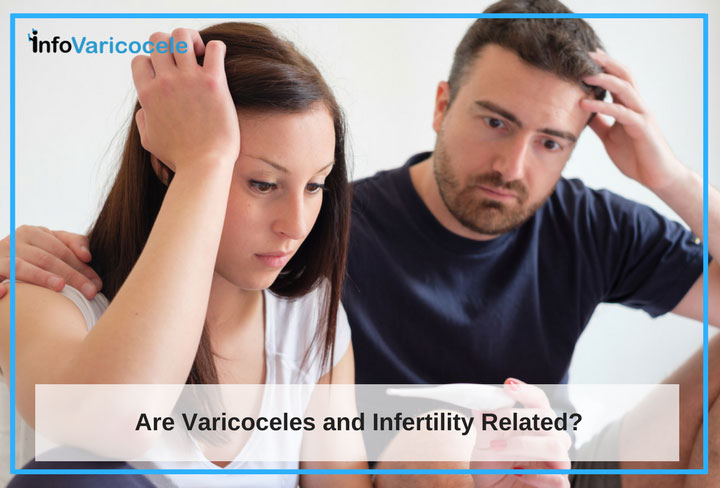
Male infertility has been associated with varicoceles. Some experts believe that blocked and enlarged veins around the testes (varicoceles) contribute to infertility by raising the temperature in the scrotum and decreasing sperm production. Decreased sperm count, decreased motility of sperm, and an increase in the number of deformed sperm are related to varicoceles.
According to the Society of Interventional Radiology, embolization is equally effective in improving male infertility and costs about the same as surgical ligation. Pregnancy rates and recurrence rates are comparable to those following surgical varicocelectomy.
Patients who underwent both procedures expressed a strong preference for embolization. Improved sperm count may be seen in three months after varicocele embolization.
How Varicoceles Contribute to Infertility?
There are 4 ways a varicocele can affect fertility:
Low Sperm Count: Varicoceles are considered to be a cause for low sperm count because of the environment that is created. Body temperature in the scrotum is normally several degrees cooler than the rest of the body. When blood pools in this area, it can disrupt the normally cool environment, slightly “overheating” the testicles, which is too warm for male reproductive organs to function well. There is a 40% drop in sperm count for every degree of elevated temperature in the scrotum and testis.1 Low sperm count affects almost 50% of those with male factor infertility.2
Lower Testosterone: Varicoceles have been linked to lower testosterone levels, which can affect sexual function.3
DNA Damage in Sperm: Varicoceles have been attributed to DNA damage in sperm. Studies suggest that men with varicoceles have more damaged sperm than men who do not suffer from the problem.4
Low Semen Quality: Varicoceles are linked to imbalances in the body that cause lower semen quality. Quality semen is required for sperm to thrive and move.5
Detection of Varicoceles and Infertility
Many varicoceles may go undiagnosed until there are fertility problems. Studies show that as many as 40% of sub-fertile men were found to have a varicocele.6
It is important to identify a varicocele during physical examination because of its potential role in damage to the testes and impact on sperm quality.
When varicocele symptoms are not present, the abnormal flow of blood can often be detected with a non-invasive imaging exam using ultrasound or a minimally invasive venogram – an x-ray in which a special dye is injected into the veins to highlight blood vessel abnormalities.
RELATED: Male Infertility and Varicoceles – 8 Things You Need to Know About His Treatment Options
Speak to a Vascular Specialist
Say No to Surgery and Schedule an Appointment Today.
If you have been diagnosed with varicoceles and would like to avoid having varicocele surgery, then varicocele embolization may be right for you. Schedule an appointment to speak with a vascular specialist in your area and learn more about your varicocele treatment options.
Sources:
i Sofikitis, N., et al. (2014). Mysteries, facts, and fiction in varicocele pathophysiology and treatment. European Urology, 13(4), 89-99. Retrieved from http://www. europeanurology.com/article/S1569-9056(14)00018-9/fulltext/mysteries-facts-andfiction-in-varicocelepathophysiology-and-treatment
ii http://www.mayoclinic.org/diseasesconditions/varicocele/basics/complications/con-20024164
iii http://www.nyp.org/news/hospital/goldstein-varicoceles-testosterone.html
iv http://www.ncbi.nlm.nih.gov/pubmed/22809864
v http://www.ncbi.nlm.nih.gov/pmc/articles/PMC3249911/
vi http://www.auanet.org/guidelines/male-infertility-optimal-evaluation-(reviewed-and-validity-confirmed-2011)


